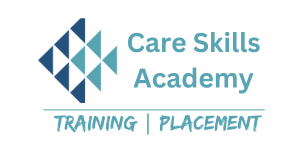The air conditioning (AC) industry is rapidly expanding, driven by growing demand in both residential and commercial spaces. Alongside this boom, the need for skilled professionals in AC PCB (Printed Circuit Board) repair is skyrocketing. If you’re considering a technical career or looking to upskill, an AC PCB repairing course could be your ideal stepping stone.
What is AC PCB Repairing?
At the heart of every air conditioning unit lies its PCB, a critical component that ensures smooth operation. The PCB controls various functions like temperature regulation, fan speed, and compressor timing. Any malfunction in the PCB can lead to the AC unit failing to perform efficiently or shutting down altogether. Repairing these delicate electronic circuits requires specialized knowledge and skills, making it a sought-after expertise in the market.
Why Choose an AC PCB Repairing Course?
- High Demand for Skilled Professionals:
The increasing reliance on air conditioners across industries and households has created a consistent demand for professionals who can diagnose and repair AC PCBs effectively. - Lucrative Career Opportunities:
Completing an AC PCB repairing course opens doors to a variety of roles, including PCB technician, electronics repair specialist, and even the possibility of running your own repair business. - Cost-Effective Learning:
Unlike lengthy and expensive degree programs, an AC PCB repairing course is short-term and focused, making it a cost-effective way to acquire in-demand technical skills. - Hands-On Learning:
These courses emphasize practical training, allowing students to work on real PCBs and troubleshoot common problems. This hands-on experience ensures that you’re job-ready upon completion.
What Will You Learn?
An AC PCB repairing course typically covers:
- Introduction to Electronics: Understanding the basic components like resistors, capacitors, and diodes.
- PCB Structure and Functioning: Learning how PCBs operate within AC systems.
- Tools and Techniques: Mastering soldering, desoldering, and using diagnostic tools like multimeters and oscilloscopes.
- Common PCB Faults: Identifying and troubleshooting issues such as burnt components, broken traces, and power failures.
- Repair and Maintenance: Replacing faulty parts, testing repairs, and maintaining PCBs for long-term performance.
Who Can Enroll?
AC PCB repairing courses are designed for individuals from diverse backgrounds:
- Electronics enthusiasts looking to expand their knowledge.
- Technicians who want to specialize in AC repairs.
- Fresh graduates aiming for a career in the electronics field.
The Road Ahead
With the skills acquired from an AC PCB repairing course, you can explore opportunities in various sectors, from service centers to manufacturing units. Additionally, with the growing DIY culture, these skills also empower you to troubleshoot and repair personal devices, saving time and money.
Conclusion
The AC PCB repairing course is not just a learning opportunity but a career-transforming experience. It equips you with the technical expertise to meet industry demands and build a secure future in the field of electronics.
Start your journey today and become an indispensable part of the booming AC repair industry!

